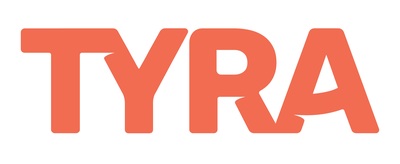Tyra Biosciences Receives FDA Rare Pediatric Disease Designation for TYRA-300 for the Treatment of Achondroplasia
Achondroplasia is the most common form of dwarfism with limited therapeutic options. People living with achondroplasia may experience severe skeletal complications including foramen magnum and spinal stenosis, hydrocephalus and sleep apnea. A specific DNA mutation in FGFR3 causes an estimated 99% of achondroplasia. TYRA is planning to submit an Investigational New Drug application (IND) to the FDA in the second half of 2024 for the initiation of a randomized Phase 2 clinical trial evaluating multiple dose cohorts of TYRA-300 for children with achondroplasia.
"The Rare Pediatric Disease Designation recognizes the severity of complications associated with achondroplasia in childhood, and underscores our opportunity with TYRA-300 to develop a highly selective, oral medication that benefits the achondroplasia community," said
Rare Pediatric Disease (RPD) Designation is granted by the FDA to investigational drugs and biologics designed to address serious or life-threatening diseases which affect fewer than 200,000 people in
About TYRA-300
TYRA-300 is the Company's lead precision medicine program stemming from its in-house SNÅP platform. TYRA-300 is an investigational, oral, FGFR3-selective inhibitor currently in development for the treatment of cancer and skeletal dysplasias, including achondroplasia. In oncology, TYRA-300 is being evaluated in a multi-center, open label Phase 1/2 clinical study, SURF301 (Study in Untreated and Resistant FGFR3+ Advanced Solid Tumors). SURF301 (NCT05544552) was designed to determine the optimal and MTD and the recommended Phase 2 dose (RP2D) of TYRA-300, as well as to evaluate the preliminary antitumor activity of TYRA-300. SURF301 is currently enrolling adults with advanced urothelial carcinoma and other solid tumors with FGFR3 gene alterations. In skeletal dysplasias, TYRA-300 has demonstrated positive preclinical results, and the Company expects to submit an IND in the second half of 2024 for the initiation of a Phase 2 clinical study in pediatric achondroplasia. TYRA-300 has received Orphan Drug Designation and Rare Pediatric Designation for the treatment of achondroplasia from the FDA.
About
For more information about our science, pipeline and people, please visit www.tyra.bio and engage with us on LinkedIn.
Forward-Looking Statements
TYRA cautions you that statements contained in this press release regarding matters that are not historical facts are forward-looking statements. The forward-looking statements are based on our current beliefs and expectations and include, but are not limited to: the potential to develop next-generation precision medicines and the potential safety and therapeutic benefits of TYRA-300; the expected timing, design (including dosing levels) and phase of clinical development of TYRA-300, including timing of a submission of an IND for TYRA-300 in pediatric achondroplasia; the potential benefits of Rare Pediatric Disease Designation; and the potential for SNÅP to enable rapid and precise drug design. Actual results may differ from those set forth in this press release due to the risks and uncertainties inherent in our business, including, without limitation: we are early in our development efforts, have only recently begun testing TYRA-300 and TYRA-200 for oncology in clinical trials and the approach we are taking to discover and develop drugs based on our SNÅP platform is novel and unproven and it may never lead to product candidates that are successful in clinical development or approved products of commercial value; potential delays in the commencement, enrollment, and completion of preclinical studies and clinical trials; interim results of a clinical trial do not predict final results and clinical outcomes may materially change as patient enrollment continues, following more comprehensive reviews of the data, and as more patient data become available; results from preclinical studies or early clinical trials not necessarily being predictive of future results; our dependence on third parties in connection with manufacturing, research and preclinical testing; acceptance by the FDA of INDs or of similar regulatory submissions by comparable foreign regulatory authorities for the conduct of clinical trials of TYRA-300 in pediatric achondroplasia; unexpected adverse side effects or inadequate efficacy of our product candidates that may limit their development, regulatory approval, and/or commercialization; the potential for our programs and prospects to be negatively impacted by developments relating to our competitors, including the results of studies or regulatory determinations relating to our competitors; the FDA may not approve an NDA for TYRA-300 in pediatric achondroplasia, and we may not receive a Priority Review Voucher (PRV) as a result; an accelerated development or approval pathway may not be available for TYRA-300 or other product candidates and any such pathway, including any priority review through the use of a PRV, may not lead to a faster development process; we may not be able to sell or transfer any unused PRV for any expected or adequate value or at all; we may not realize the benefits associated with Orphan Drug Designation, including that orphan drug exclusivity may not effectively protect a product from competition and that such exclusivity may not be maintained; regulatory developments in the United States and foreign countries; we may use our capital resources sooner than we expect; and other risks described in our prior filings with the Securities and Exchange Commission (SEC), including under the heading "Risk Factors" in our annual report on Form 10-K and any subsequent filings with the SEC. You are cautioned not to place undue reliance on these forward-looking statements, which speak only as of the date hereof, and we undertake no obligation to update such statements to reflect events that occur or circumstances that exist after the date hereof. All forward-looking statements are qualified in their entirety by this cautionary statement, which is made under the safe harbor provisions of the Private Securities Litigation Reform Act of 1995.
Contact:
aconrad@tyra.bio
![]() View original content to download multimedia:https://www.prnewswire.com/news-releases/tyra-biosciences-receives-fda-rare-pediatric-disease-designation-for-tyra-300-for-the-treatment-of-achondroplasia-302051332.html
View original content to download multimedia:https://www.prnewswire.com/news-releases/tyra-biosciences-receives-fda-rare-pediatric-disease-designation-for-tyra-300-for-the-treatment-of-achondroplasia-302051332.html
SOURCE
